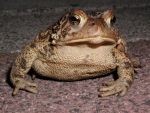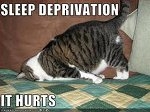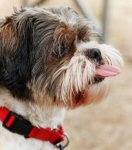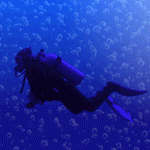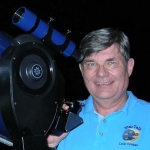Do you use heated or cold water?
Re: Do you use heated or cold water?
I don't have a heated hose, but I keep my hose under my electric blanket which helps, since I have no heat in my bedroom - but I do have two labradors to keep the bed warm as well.
- tschultz
- Posts: 257
- Joined: Sun Dec 19, 2010 9:36 pm
- Location: Moncton, NB, Canada, Earth, Milky Way Galaxy
Re: Do you use heated or cold water?
Well, based on the overwhelming majority of people using a heated humidifier I am thinking that I should definitely get a heated humidifier when I get my machine. I though I may need the humidifier and heated hose as I generally keep the bedroom temperature very cool and am concerned with condensation or rain-out. At least then I have all my options open to me as I adjust to treatment; remove the humidifier and/or set it from OFF to whatever level is needed.
Thanks for the input, it is helpful.
Thanks for the input, it is helpful.
_________________
| Humidifier: S9™ Series H5i™ Heated Humidifier with Climate Control |
| Additional Comments: Currenlty using Auto 15-20, EPR 1 with medium response; 95% pressure is 16.8 |
Adjusting to life with OSA and being pressurized each night ...
Re: Do you use heated or cold water?
Same here.roster wrote:In the poll you did not provide for my choice: Have Humidifier/Don't Use.
Don't Bend or Squash, My Aluminum Hat,it keeps them from knowing what I am thinking!
I need more Coffee&Old Bushmills!
"Without Truckdrivers America Stops!"
I'm not always wrong,but I'm not always right!
"Semper Fi"
I need more Coffee&Old Bushmills!
"Without Truckdrivers America Stops!"
I'm not always wrong,but I'm not always right!
"Semper Fi"
Re: Do you use heated or cold water?
Big S wrote:At least one study has shown that upper airway symtoms developed in 56% of CPAP users. Of those with symtoms , 50% improved with use of a cold pass-over humidifier and 87% of the remaining patients improved with a heated humidifier. Symtoms could include respiratory mucociliary dysfunction, nasal mucosal inflammation, increased nasal mucosal blood flow, increased nasal congestion, and decreased static pulmonary compliance.
Big S,
Care to define any of those terms in language a simple mathematician might understand?
Nasal mucosal inflamation and increased nasal congestion I get. But what the heck is decreased static pulmanary compliance?
_________________
| Machine: DreamStation BiPAP® Auto Machine |
| Mask: Swift™ FX Nasal Pillow CPAP Mask with Headgear |
| Additional Comments: PR System DreamStation and Humidifier. Max IPAP = 9, Min EPAP=4, Rise time setting = 3, minPS = 3, maxPS=5 |
Re: Do you use heated or cold water?
Since I use the System One I with the humidity control I prefer to use heated water from warm to hot. I think I get the best sleep like this compared to cold water. I can actually tell a difference in comfort when using warm or hot water as opposed to cold water.
-
ResmedUser
Re: Do you use heated or cold water?
Heated. I cannot imagine using cold water for humidification. Talk about getting sick.
Mikey
Mikey
- DreamDiver
- Posts: 3082
- Joined: Thu Oct 04, 2007 11:19 am
Re: Do you use heated or cold water?
Heated water, heated hose. So - when some of us are saying 'Have but don't use' does that mean 'Fill and use but don't turn on'? or 'Have but leave in the closet'? I'm amazed that anyone can deal with air at 30% to 50% humidity forced past their sinuses and throats without drying out and damaging the tissues lining the throat. Our indoor humidity meter shows it stays around 30% during the winter and about 80% in the summer. During the summer, I can see going without a humidifier, but winter in Georgia, NC, Tennessee? Rooster, you must have lungs of steel.
_________________
| Mask: ResMed AirFit™ F20 Mask with Headgear + 2 Replacement Cushions |
| Additional Comments: Pressure: APAP 10.4 | 11.8 | Also Quattro FX FF, Simplus FF |
Re: Do you use heated or cold water?
Robysue, sorry, I forget I'm retired. Decreased means reduced. Static is a no flow condition. Pulmonary compliance is the ability of the lungs to stretch during a change in volume relative to an applied change in pressure. Some things bothered me when I got introduced to cpap therapy. Number one was the incredible pressure compared to what I was used to breathing. My lungs inflated immediately without me doing anything except opening my mouth. Number two and equally important was that I really had to work at getting rid of this force fed air. Crap! I hadn't anticipated this occurance. I, of course, complained, and the kind technician enabled a c-flex equivalent. The damage was done though. I now knew about continuous pressure in my throat and lungs. I had visions of being a non-animated participant in the Macy's Day Parade. The third thing that happened was the fluttering of my lips when I awakened after the first fitting of cpap equipment. This was also difficult to control and now I was worried about 3 things that now surprised me (since I lived in complete physical denial and mental instability associated with denying the inability to breathe, and of course, not knowing about the available consensus medicine available right here at cpaptalk). Anyway, when I got my equipment, dealing with the pressure and dryness were the unexpected dealbreakers. I am concerned about tissue health while breathing with air under pressure. Will my lungs loose their elasticity after prolonged periods of living with this new inflator? Will my teeth fall out because of the intolerable desert like conditions within the mask? Without this site, I had to find some answers or my machine would surely end up in the garden shed or worse since it's not powerful enough to pump up my bike tires. What I quickly learned was the meaning of relative and absolute humidity as well as dew and frost points and possibly how to deliver moisture where it is needed. I also learned about nasal tissue health as well as the most common surgeries for nasal tissue removal and airway reconstruction. I believed that these things were possible realities. Because of the knowledge I was able to garner and the patterned noisiness of my newly acquired mechanical nose, I was able to kick a 25 year Afrin addiction. I consider this accomplishment as monumental as starting my cpap journey. Anyway, sorry for the rant, but it was there. I'm not a doctor so you might have to check on my definition.robysue wrote:
Care to define any of those terms in language a simple mathematician might understand?
Nasal mucosal inflamation and increased nasal congestion I get. But what the heck is decreased static pulmanary compliance?
_________________
| Mask: Mirage Quattro™ Full Face CPAP Mask with Headgear |
| Humidifier: S9™ Series H5i™ Heated Humidifier with Climate Control |
-
DaveMunson
- Posts: 266
- Joined: Thu Jun 23, 2005 8:36 pm
Re: Do you use heated or cold water?
On the dry nights of winter, heated at max temp with warm water. (Now).
On the hot spring most humid days, off; no water in the tank.
On the hot semi-humid days, turned down or off with water in the humidifier.
In the heat of normal summer, low heat with water.
It depends. After a few years, you catch on and adjust.
On the hot spring most humid days, off; no water in the tank.
On the hot semi-humid days, turned down or off with water in the humidifier.
In the heat of normal summer, low heat with water.
It depends. After a few years, you catch on and adjust.
Re: Do you use heated or cold water?
No small task. I applaud you. Never was addicted nearly that long but I have been and been through the withdrawal.Big S wrote:Because of the knowledge I was able to garner and the patterned noisiness of my newly acquired mechanical nose, I was able to kick a 25 year Afrin addiction.
_________________
| Machine: AirCurve™ 10 VAuto BiLevel Machine with HumidAir™ Heated Humidifier |
| Additional Comments: Mask Bleep Eclipse https://bleepsleep.com/the-eclipse/ |
I may have to RISE but I refuse to SHINE.
Re: Do you use heated or cold water?
DreamDiver wrote:Heated water, heated hose. So - when some of us are saying 'Have but don't use' does that mean 'Fill and use but don't turn on'? or 'Have but leave in the closet'? I'm amazed that anyone can deal with air at 30% to 50% humidity forced past their sinuses and throats without drying out and damaging the tissues lining the throat. Our indoor humidity meter shows it stays around 30% during the winter and about 80% in the summer. During the summer, I can see going without a humidifier, but winter in Georgia, NC, Tennessee? Rooster, you must have lungs of steel.
DD, I continue to be surprised by the majority opinion among CPAPers that "a high level of humidity is good." I have never considered my lungs, although strong, to be anything other than typical of an active, healthy individual.
Any of dozens of health sources claim that a humidity level of 30 - 50% is optimal for airway and sinus health. For example, the Mayo Clinic website says,
The house designing and building industry uses the range of 40 to 50 percent for healthy indoor environments. Several sources have published charts similar to this one:Ideally, humidity in your home should be between 30 and 50 percent. http://www.mayoclinic.com/health/humidifiers/HQ00076
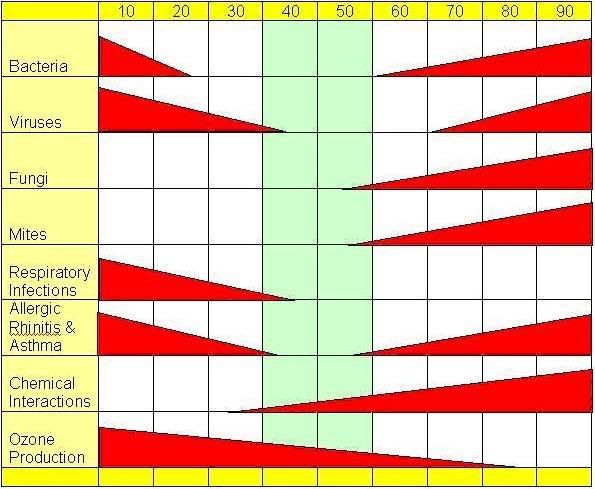
I do not put water in my CPAP humidifier except for a very few days per year when the indoor relative humidity falls to 35% or below. Then I will only turn the humidifier heat to setting one or two. Typically our home humidity is around 50% year-round, with levels dropping to the range of 30 to 40% only a few of the coldest days each year.
I would also remind CPAPers that the air flow through their passages is no greater in volume or speed than that of a non-CPAPer breathing normally while asleep. Additionally, if your room humidity level is, for example, 40%, the the humidity level of the CPAP air entering your nostrils will also be about 40% without any supplemental humidity from a CPAP humidifier.
It is still a puzzle to me. There are no arid areas in NC, GA, or TN.
Rooster
I have a vision that we will figure out an easy way to ensure that children develop wide, deep, healthy and attractive jaws and then obstructive sleep apnea becomes an obscure bit of history.https://www.youtube.com/watch?v=0ycw4uaX ... re=related
I have a vision that we will figure out an easy way to ensure that children develop wide, deep, healthy and attractive jaws and then obstructive sleep apnea becomes an obscure bit of history.https://www.youtube.com/watch?v=0ycw4uaX ... re=related
- DreamDiver
- Posts: 3082
- Joined: Thu Oct 04, 2007 11:19 am
Re: Do you use heated or cold water?
Rooster, thanks for the awesome references.roster wrote:DD, I continue to be surprised by the majority opinion among CPAPers that "a high level of humidity is good." I have never considered my lungs, although strong, to be anything other than typical of an active, healthy individual.
...
It is still a puzzle to me. There are no arid areas in NC, GA, or TN.
If I use humidity that is heated to high, my nasal passages close up. That coincides with some of what you're talking about.
If I attempt to use CPAP without any humidifier, I wake up with a mouth as dry as paper. I mean literally - my taste buds can't taste because they and the insides of my mouth are entirely dry. I cannot swallow. There must be something different in the way my body reacts to the forced air from the machine and how your body does. Additionally, prior to my using cpap, I used to cough all night and have persistent rhinitis throughout the winter during periods when the humidity went below %50. I rarely have a persistent cough or rhinitis now.
I wish we could keep our house at %50 during the summer, because now that I have CPAP, it would make sleeping that much easier. Our house is from the 1960's and still has those aluminum-framed single-paned jalousie windows.

Sheesh - the only place I can find current image references to these kinds of windows are barn-furnishing sites... Welcome to Georgia.
_________________
| Mask: ResMed AirFit™ F20 Mask with Headgear + 2 Replacement Cushions |
| Additional Comments: Pressure: APAP 10.4 | 11.8 | Also Quattro FX FF, Simplus FF |
Re: Do you use heated or cold water?
I don't use water in mine. But I use the humidifier as a "muffler" to quiet the blower noise a bit.
There wasn't a choice for that...
There wasn't a choice for that...
The OSA patient died quietly in his sleep.
Unlike his passengers who died screaming as the car went over the cliff...
Unlike his passengers who died screaming as the car went over the cliff...
Re: Do you use heated or cold water?
DreamDiver wrote: If I attempt to use CPAP without any humidifier, I wake up with a mouth as dry as paper. I mean literally - my taste buds can't taste because they and the insides of my mouth are entirely dry.
Do you think you are mouthbreathing more without supplemental humidity and the mouthbreathing is drying out your mouth?
My biggest objection to the humidifier is the extra heat it pumps into the bed. I can't imagine adding a heated hose to the equation. I like my bed cool.
I remember the jalousie windows but can't remember how we pronounced jalousie. Can only imagine that we butchered the pronunciation. (http://www.howjsay.com/index.php?word=jalousie)
jalousie [ˈʒælʊˌziː]
n
1. (Fine Arts & Visual Arts / Furniture) a window blind or shutter constructed from angled slats of wood, plastic, etc.
2. (Fine Arts & Visual Arts / Furniture) a window made of similarly angled slats of glass
[from Old French gelosie latticework screen, literally: jealousy, perhaps because one can look through the screen without being seen]
Rooster
I have a vision that we will figure out an easy way to ensure that children develop wide, deep, healthy and attractive jaws and then obstructive sleep apnea becomes an obscure bit of history.https://www.youtube.com/watch?v=0ycw4uaX ... re=related
I have a vision that we will figure out an easy way to ensure that children develop wide, deep, healthy and attractive jaws and then obstructive sleep apnea becomes an obscure bit of history.https://www.youtube.com/watch?v=0ycw4uaX ... re=related
- DreamDiver
- Posts: 3082
- Joined: Thu Oct 04, 2007 11:19 am
Re: Do you use heated or cold water?
Rooster,roster wrote:Do you think you are mouthbreathing more without supplemental humidity and the mouthbreathing is drying out your mouth?
My biggest objection to the humidifier is the extra heat it pumps into the bed. I can't imagine adding a heated hose to the equation. I like my bed cool.
I remember the jalousie windows but can't remember how we pronounced jalousie.
Mouth breathing is likely no longer part of the equation. As long as I have my full face mask on, my mouth can stay closed and does not dry out. My leak line is usually near zero and often almost flat - especially when using one of padacheek's leak straps.
For me, the extra heat is not as much a problem as the humidity in the room during the summer. About three in the morning, if the room humidity is high, it can make a seventy-degree room feel like eighty.
I believe it's pronounced JAH'-lu-see' - like 'fallacy' except beginning with a 'j'.
I'd like to take a moment to interject for those who don't have a full face -- or a Hybrid, as Rooster does -- that the idea is to keep your mouth closed, even with a full face mask. It is always best to breathe through the nose, even with a full-face mask. By keeping the air column pressure equal between nose and mouth, it makes it easier for the FF Mask wearer to keep the mouth closed, thus reducing the possibility of leaks and dry mouth.
_________________
| Mask: ResMed AirFit™ F20 Mask with Headgear + 2 Replacement Cushions |
| Additional Comments: Pressure: APAP 10.4 | 11.8 | Also Quattro FX FF, Simplus FF |








